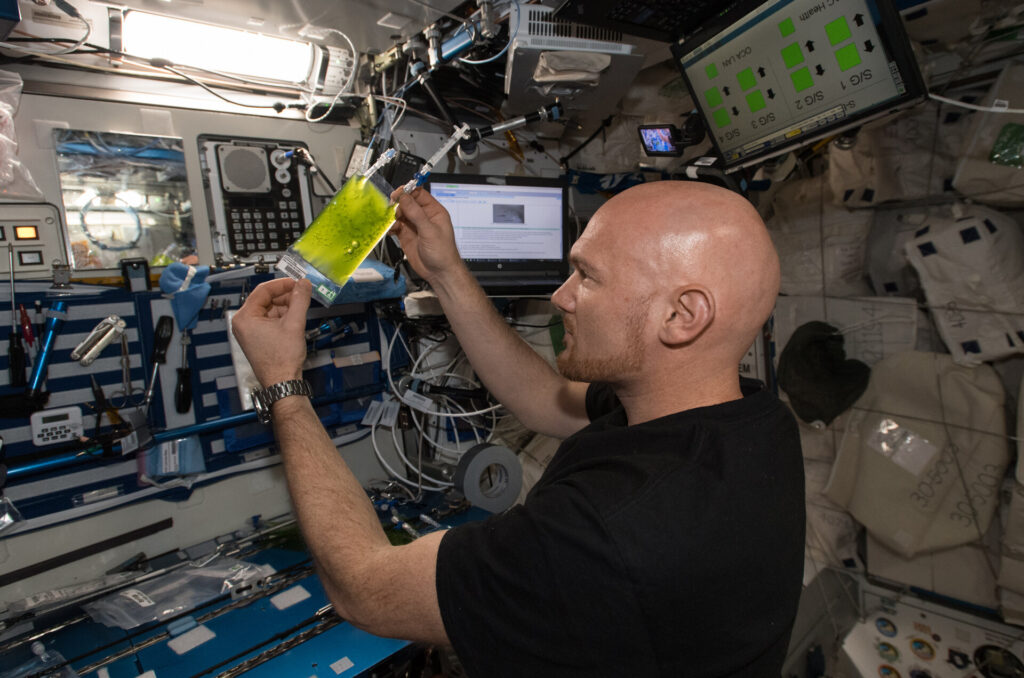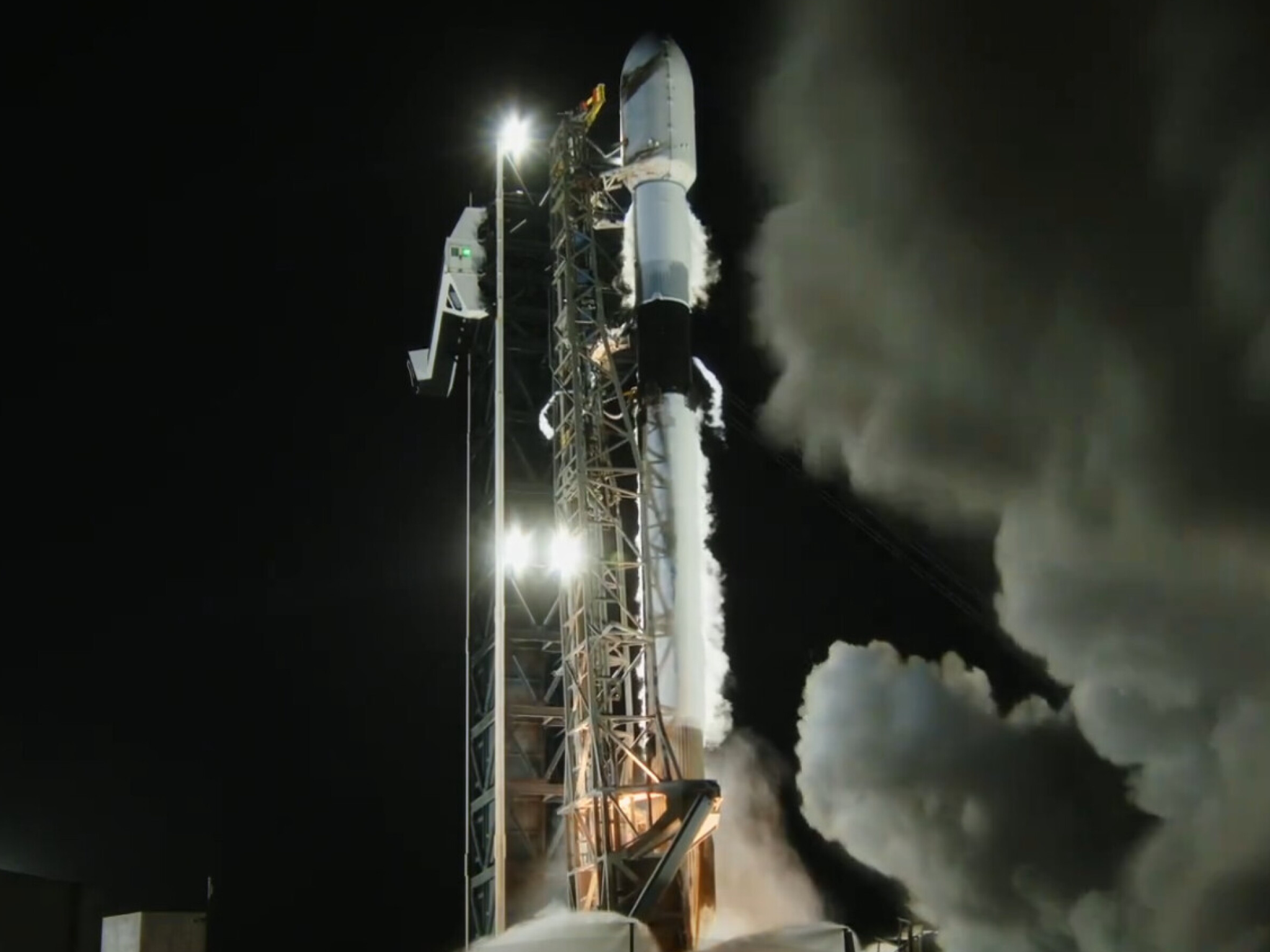4 Mins Read
Scientists have launched a miniature lab into Earth’s orbit, which contains microbes designed to produce proteins in space.
Space may be the final frontier, but could it also be the solution to Earth’s food security problems?
It’s a question that led to the launch of a mini laboratory into the planet’s orbit this week, containing yeast to produce edible proteins via precision fermentation in space.
The project is being spearheaded by scientists at Imperial College London’s Department of Bioengineering and Bezos Centre for Sustainable Protein, and Cranfield University, which collaborated with the European Space Agency, Frontier Space, and Atmos Space Cargo.
The partnership installed a fully automated miniature microbe laboratory aboard Phoenix, Europe’s first commercial returnable spacecraft, which took off at SpaceX on Monday. The intention is to find a way to produce food and other bio-derived products in space for astronauts, which has implications for food production on Earth.
Rodrigo Ledesma-Amaro, from Imperial College’s Department of Bioengineering, said: “We dream about a future where humanity heads off into the dark expanses of space. But carrying enough to feed ourselves on the journey and at our destination would be unimaginable in cost and weight.”
He added: “We’re excited that this project makes use of academic and industry expertise in physics, engineering, biotech and space science – converging on this challenge.”
Space protein exploration could have lessons for Earth too

According to Imperial College, it takes food, water and fuel are heavy supplies that add to the cost of a space flight, which pushes up the cost of feeding each astronaut to around £20,000 ($26,500) per day. One solution could be to take yeast strains onboard and engineer them to produce food, pharmaceuticals, fuel and bioplastics in the microgravity of space.
The lab will transport microbe specimens to space and return them to Earth for comprehensive analysis, providing crucial data about microgravity, long-term storage, and the impact of space transportation.
Frontier Space CEO Aqueel Shamsul said the mission represented a “major milestone” in democratising access to space research. “Our SpaceLab Mark 1, ‘lab-in-a-box’ technology enables researchers to conduct sophisticated experiments in microgravity without the traditional barriers to space-based research,” he explained.
“This project represents a significant opportunity to mature Frontier’s technology, providing bio-experimentation solutions for space environments with the future space infrastructure post-International Space Station.”
The lessons from this experiment could speed up developments in space-based manufacturing, pharmaceutical research, and sustainable food production for long space missions.
“If just a handful of cultivated cells could provide all our food, pharmaceuticals, fuels and bioplastics using freely available resources, that would bring the future closer,” noted Ledesma-Amaro.
The work will build on his research at the Bezos Centre for Sustainable Protein and Microbial Food Hub at Imperial College, where he and his colleagues are working on creating the next generation of alternative proteins.
By exploring precision fermentation – which combines traditional fermentation with the latest advances in biotech to efficiently produce proteins and fats – in space, researchers could better understand how to make microbial foods on Earth, and in barren areas where food production is currently limited.
Alternative proteins in space

Space and alternative protein exploration have a long history; in recent years, efforts have been ramped up as the need for future-friendly foods becomes more urgent by the day.
The European Space Agency, which was part of this latest project, has previously supported two projects from the UK and Germany to grow cultivated meat in space. “The feeling is that we are at the beginning of a process that could transform the industry, making the conventional meat production model obsolete,” Paolo Corradi, an engineer at the agency, said in 2023.
In the US, NASA has been conducting experiments on cultivated meat since 2001. And in 2022, it partnered with fungal protein startup Nature’s Fynd to develop a micro-gravity biofilm-biomass reactor to produce nutrient-dense vegan protein for astronauts. NASA runs the Deep Space Food Challenge with the Canadian Space Agency as well, and among its winners is Solein gas protein maker Solar Foods.
Mexican cultivated meat producer Micro Meat, meanwhile, has teamed up with US-based space parks developer Orbital Assembly to install meat production equipment in its space stations.
SpaceX, where this new mini lab was launched, has worked with cultivated meat firm Aleph Farms to conduct experiments on microgravity’s effects on muscle tissue growth, using beef cells harvested by the Israeli startup. Aleph Farms has also grown cell-cultured beef on the International Space Station, nearly 400km away from any natural resources.
The Japan Aerospace Exploration Agency has been working with cellular agriculture innovator Integriculture and the Tokyo Women’s Medical University on a project involving cellular agriculture and cultivated meat production in space.



